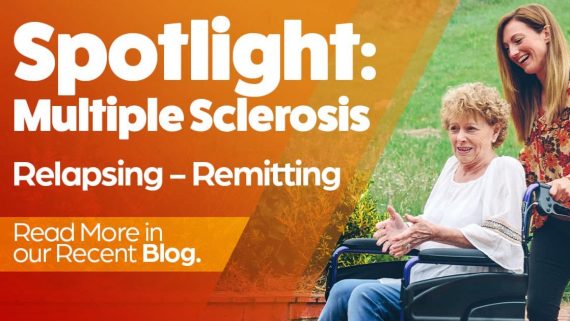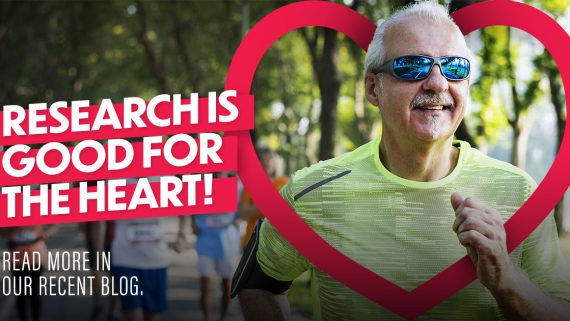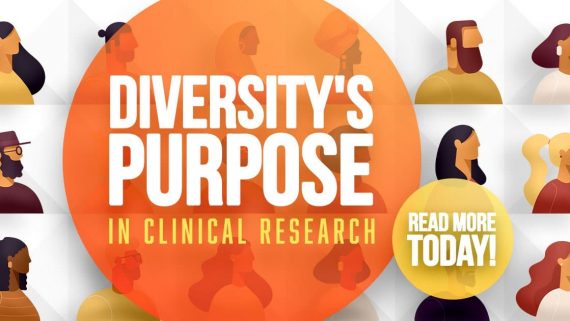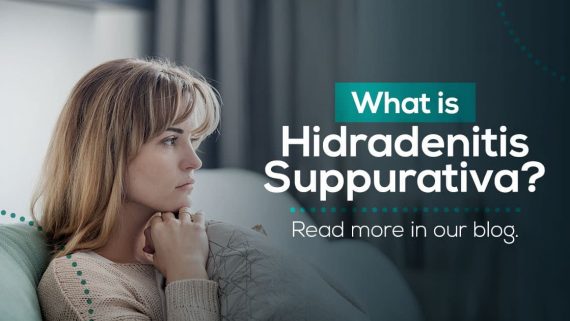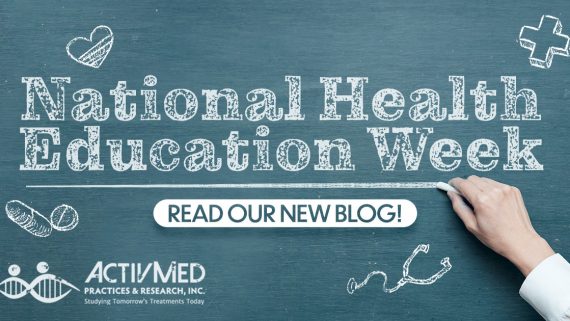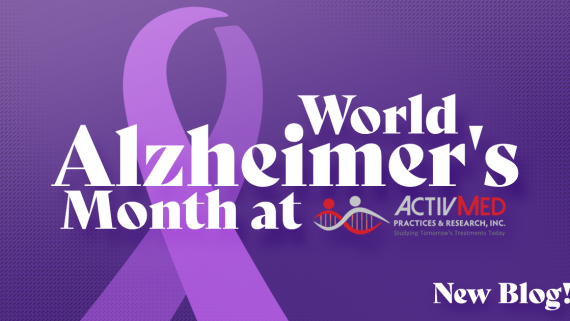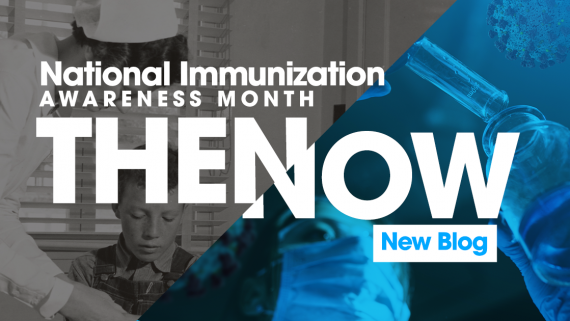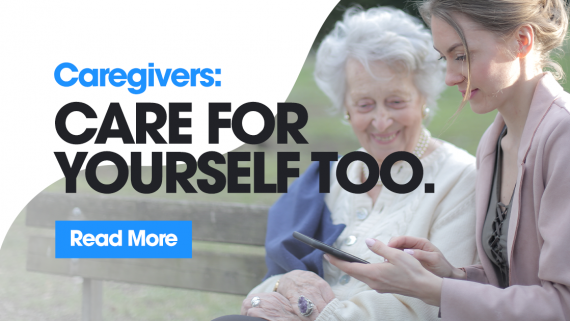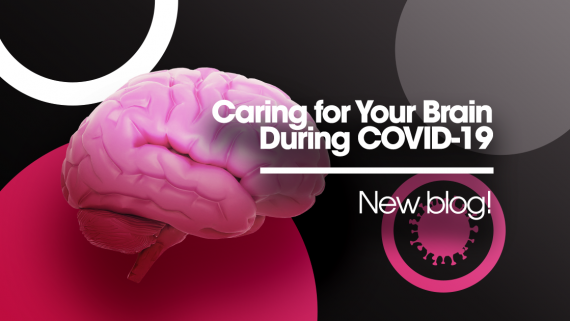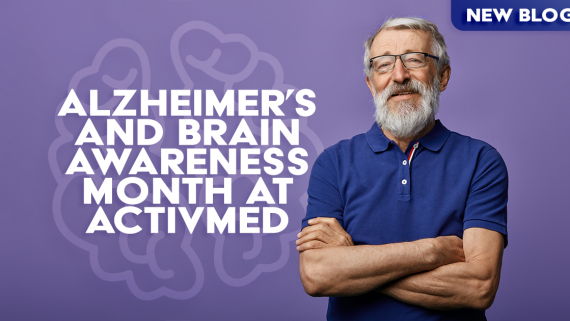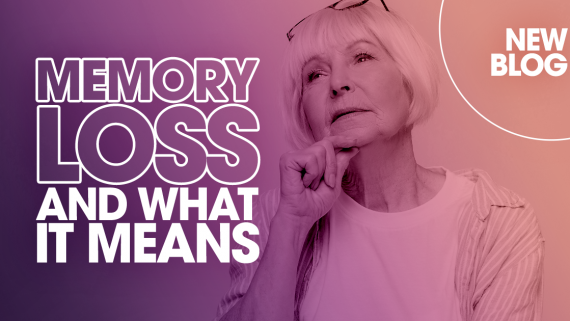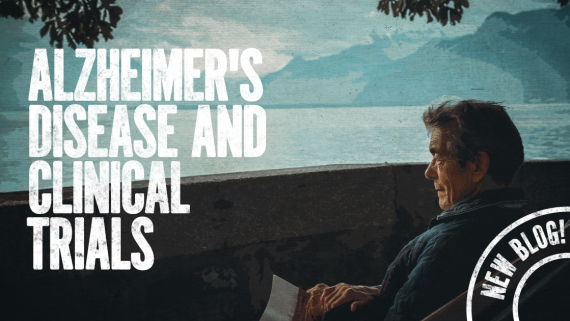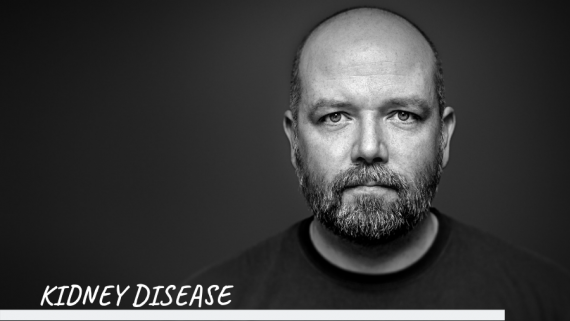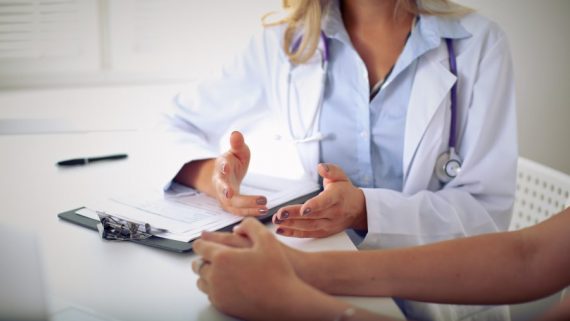Summer typically means spending more time outside doing all the summer-y things most of us love. However, the increased exposure to sunlight and heated air can turn some skin conditions upside-down. Fortunately, you can take some simple steps to avoid flare-ups during the summer, which can quickly ruin your fun. Here are a few examples.
Hidradenitis Suppurativa and Summer
For Hidradenitis Suppurativa (HS), it is clear that prolonged exposure to heat exacerbates symptoms. You can still enjoy the summer by taking a few precautions along the way, such as:
- Wear lightweight clothing to keep you cool. Opt for fabrics with UV protection and that are made from lightweight materials like polyester that are moisture-wicking.
- Drink enough water to keep hydrated throughout the day. Also, supplement with coconut water, homemade juices, and smoothies to change things up.
- Avoid direct sun as much as possible. Use a portable mini fan to help in other cases.

Keep in mind it’s also important to be mindful of how your body always feels. Always be on the lookout for signs you may be getting overheated. Two of the most common heat-related illness are heat stroke and heat exhaustion. Some symptoms are dizziness, fatigue, headaches, nausea, confusion, fast pulse, and elevated body temperature.
Atopic Dermatitis (Eczema) and Summer
When UV therapy is a treatment for eczema-prone skin, you may wonder why summer isn’t always sweet for individuals who have it. Sweating is the number one enemy in the summer since it contains various things that can irritate broken skin, like that in eczema. Typically, it worsens in areas that trap moisture like the elbows, back of the neck, or the backs of the knees. Beat summer eczema flare-ups with these tips:
- Avoid sweating by staying cool. Stick to the shade when outside, and drink plenty of water to keep your body temperature at an average level.
- Choose a mineral sunscreen versus a chemical one. These should have the words “physical” or “mineral” on the bottle with ingredients in them like zinc oxide and titanium dioxide.
- Rinse off after swimming and change out of wet clothes as soon as possible. If you can’t rinse off, keep a spray bottle with clean water and spray off your skin. Always bring a dry change of clothes to change into if you get sweaty or after swimming.

Beat the Summer Heat. Join a Dermatology Study Today!
Many of the tips above are great when managing most skin conditions this summer, along with keeping your skin moisturized. If you’re still looking for a way to give back this summer and beat the heat, consider one of our enrolling dermatology studies here at ActivMed Practices & Research. We have studies for psoriasis, eczema, hidradenitis suppurativa, facial acne, and more! To learn more, click to visit our Beverly, MA, and Portsmouth, NH locations for details today!
Sources:
https://www.everydayhealth.com/eczema/strategies-avoiding-eczema-flare-ups-summer/
https://hsdisease.com/living/beat-heat
https://www.aad.org/public/everyday-care/skin-care-secrets/routine/prevent-summer-skin-problems
On July 7th, chocolate lovers around the globe will guiltlessly indulge in their favorite treat during World Chocolate Day. Though chocolate connoisseurs may argue the benefits of responsible consumption, its impact on migraines isn’t always clear. Is it a trigger or a warning of an impending attack? In truth, the relationship between chocolate and your migraine is as unique as you are.
To Eat, or Not to Eat
Migraines are often triggered by different environmental, physical, and emotional factors. Changes in routine, dehydration, and stress are the most common. Excessive consumption of caffeinated products can contribute to the onset of a migraine. All chocolate has some caffeine in it. So, if that is a trigger for your migraines, you may want to consider that.

On the other hand, many people reportedly crave sweet food such as chocolate before the pain of a migraine. This leads them to conclude that eating sweets are causing their migraines. However, sometimes those cravings are symptoms of the beginning of an attack. Identifying what’s triggering your migraines and recognizing common symptoms before an attack are both crucial in managing your condition better. Therefore, knowing how chocolate affects your migraines is one way to help!
World Chocolate Day
Since 2009, World Chocolate Day celebrates all kinds of goodies made from chocolate. It is also the anniversary of when chocolate was first brought over from Europe on July 7th, 1550. Since then, the dark treat has led to the creation of chocolate milk, hot chocolate, chocolate candy bars, chocolate cake, brownies, and many other favorites. You can join in the chocolate-themed celebration by enjoying your favorite dessert, reading a related book, or learn more about chocolates around the world. Whatever you do, share it on social media using the hashtag #WorldChocolateDay!

Although the effects of chocolate are unique to each person with migraines, a surer way to help migraine symptoms is through clinical research studies. By participating in migraine research studies, you play a personal role in advancing options for current and future generations. You also learn more about your condition and may gain access to potential new opportunities not yet available to the public.
Migraines are also common in children, which drives the need for designing age-appropriate therapies for safer, more effective outcomes. ActivMed Practices & Research is currently enrolling migraine studies for children aged 6-17 at our Lawrence, MA location. To learn more, call (978) 992-4239 or visit our website.
Sources:
https://nationaldaycalendar.com/world-chocolate-day/
https://www.migrainetrust.org/about-migraine/trigger-factors/common-triggers/
Obsessive-compulsive disorder or OCD is a chronic anxiety disorder that affects 1 in 40 Americans. Neatness and germaphobia are often what come to mind when people hear the term. In actuality, these are some of many rituals created to satisfy repeated, unwanted thoughts. OCD isn’t uniform and goes beyond a color-coded planner or organized pantry. It is so much more.
Obsession Categories and Associated Compulsions
OCD is a never-ending cycle of obsessions and compulsions. Obsessions are unwelcome thoughts or urges that repeatedly play out in patients’ minds, creating immense anxiety and stress. These typically warn of impending doom which triggers a patient’s compulsion to act out certain behaviors or rituals to dispel the thoughts or relieve stress. The relief is only short-term, and the thoughts return, and the cycle is repeated over and over-consuming an hour, sometimes several each day.
Those with OCD know their thoughts and actions are not rational and wish they could be free of them but feel helpless to stop them. For instance, suppressing OCD behaviors end up worsening symptoms, so it’s not something you can stop on your own. There are several categories of obsessions and various associated compulsive behaviors. These generally include:
Common Obsessions:
- Intrusive Thoughts
- Unwanted Thoughts
- Repetitive Thoughts
- Racing Thoughts
- Violent Thoughts
- Sexual Thoughts
- Religious Blasphemy Thoughts
Common compulsions:
- Avoidance
- Reassurance Seeking
- Checking
- Hand Washing
- Excessive Prayer
- Counting
- Comparison Seeking
- Excessive Guilt
Education, Healthy Living, and Treatment
OCD can severely impact one’s social, emotional, and work-related areas of life. However, with effective treatment, healthier lifestyle, and education, most experienced improved symptoms and quality of life.
New tools and ideas on how to better help people with OCD are being investigated in clinical research studies and providing hope to patients. Through patient collaboration, we continue to gain knowledge that improves the lives of current and future generations.

To learn more about enrolling OCD studies with ActivMed Practices & Research, contact our Methuen, MA office at (978) 655-7155 or visit our website.
Sources:
https://beyondocd.org/information-for-college-students/symptoms-of-ocd
Lyme disease is a bacterial infection found throughout the United States and every continent except Antarctica. More than 475,000 Americans are diagnosed every year, but experts believe it is much higher. Lyme disease is treatable, but symptoms are often misdiagnosed as other conditions. Without treatment, the infection can progress into more severe symptoms. Guarding your family against Lyme disease involves a little surveillance and a good plan of defense.
The Best Offense is a Good Defense
Protecting your family from Lyme disease is a multi-faceted approach. To begin, you need to know how the infection occurs. Lyme disease is caused by a corkscrew-shaped bacterium called Borrelia burgdorferi transmitted through the bite of an infected black-legged tick. Avoiding contact with this type of tick is the ultimate goal in a combination of the following measures:
- Surveillance: Check recent surveillance maps of cases reported in your area to see where the infection rate is more widespread. Remember, these are only cases reported, so the map data can only go so far.
- Avoiding Hot Spots: The ticks that can cause Lyme disease mainly live in wooded, bushy areas with long grass. Avoid walking in these areas.
- Repellants, Clothing Care, and Self-Checks:
- Repellants– Use one with a DEET concentration of 20% or higher. Apply products with permethrin to clothing or buy pretreated materials.
- Clothing Care– When in tick hot spots, wear long-sleeved shirts, hats, and gloves. Removed clothing immediately once home and wash and dry on high heat.
- Self-checks– Shower as soon as you get home with a washcloth to remove any unattached ticks. Check your body from head to toe. Underdeveloped ticks called nymphs are the primary transmitters and are about the size of a poppy seed, so look carefully.

Adopting these steps should reduce your chances of Lyme disease significantly. If you discover a tick has attached itself, it will be early and mostly means it didn’t have the 3-4 days it needs to transmit the infection. Even so, alert your provider immediately and keep a lookout for symptoms. You can find a checklist of common symptoms here.
Improving Detection
There is currently no test determining whether a patient has an active infection or whether the infection has been eliminated by treatment. Available lab tests help identify antibodies to the bacteria, which your body takes a few weeks to make after an infection. This makes early diagnosis difficult with lab tests alone, so symptom history, tick prevalence in the area, and other factors are used to close the gap in diagnosis accuracy.
Potential new detection options are under evaluation in clinical research studies, and we need your help! ActivMed Practices & Research is currently seeking participants aged seven and older to join enrolling Lyme disease studies. Individuals currently experiencing Lyme disease symptoms have recently been diagnosed, and those with no prior history of Lyme Disease are welcome to apply.

The studies are being conducted at our Methuen, MA, Beverly, MA, and Portsmouth, NH locations. Click here to select your preferred clinic location, view additional information, and application submission.
Sources:
https://www.mayoclinic.org/diseases-conditions/lyme-disease/symptoms-causes/syc-20374651
https://www.lymedisease.org/lyme-basics/lyme-disease/about-lyme/
Binge eating disorder (BED) involves the repeated compulsion to eat large quantities of food. BED isn’t a lifestyle choice but rather a never-ending cycle you have no control over. It is one of the newest eating disorders the DSM-V recognizes, yet the most common in American. Extreme overeating is one of the many signs you might be binge eating. Let’s look into the others.
Urge, Compulsion, Shame, Repeat.
Binge eating disorder involves recurrent episodes of eating large amounts of food followed by feelings of distress and shame afterward. The amount of food is beyond what anyone would want to eat and often consumed very quickly and to the point of discomfort. Those with BED are aware of their actions but have little control to stop them. They may fast between episodes but do not regularly use other countermeasures to get rid of food or calories by vomiting or excessive laxative use, for example. While it’s common for patients with BED to be overweight, not everyone is.

Binge eating disorder has psychological, behavioral, and physical symptoms that also include:
- Feeling uncomfortable eating around others
- Stomach problems, cramping
- Eating even when already full or not hungry
- Noticeable fluctuations in weight both up and down
- Hoarding or stealing food and storing it in strange places
- Frequently eating alone or in secret
- Dieting often
Long-term physical effects of binge eating can be permanent, even fatal, if not treated in time. A few examples are obesity, heart disease, diabetes, esophagus and stomach damage, and sleep apnea.
Treating Binge Eating Disorder
Treatment for BED aims to reduce the frequency of episodes, manage thoughts related to bingeing, and improve mood. Weight loss and metabolic health[HW1] are addressed as needed for patients at most risk (such as diabetes) but should not be the focus. Cognitive-behavioral therapies (CBT) are the basis of most approaches to BED. CBT is a form of talk therapy. It shows you how to deal with negative behavior patterns by breaking them down into smaller parts.
Vyvanse is the first FDA-approved medication to treat moderate to severe binge eating disorders in adults. Topamax, an anti-convulsant, and some antidepressants have also been shown to help control episodes and other symptoms. Additional options are currently under investigation in clinical research studies.
BED Symptoms Can Feel Uncontrollable. Take Charge Today!

Have you been diagnosed with BED and frustrated with current treatment options? ActivMed Practices & Research is now enrolling studies for individuals diagnosed with binge eating disorder that may help. Get involved today and help advance medicine for BED. Call us at (978) 655-7155, or visit our website for more information.
References:
https://www.beateatingdisorders.org.uk/types/binge-eating-disorder
https://www.nationaleatingdisorders.org/learn/by-eating-disorder/bed
Parkinson’s disease (PD) occurs when the dopamine-producing cells in the brain stop working or die off. PD is progressive and can cause tremors, slowness, stiffness, and other non-motor symptoms. April is Parkinson’s Awareness Month. This year’s theme is #KnowMorePD, focusing on raising the bar and raising awareness for Parkinson’s, and improving the lives of individuals affected.
5 Facts You May Not Know About Parkinson’s:
- British surgeon Dr. James Parkinson discovered it in 1817
- Around 500,000 new cases are diagnosed each year
- Most patients are middle-aged and diagnosed, on average, around age 56
- Small handwriting is an early warning sign
- It has no cure, but there are several effective treatments available

#KnowMorePD
Activities are underway as PD patients, loved ones, and caregivers share their stories, petition local governments, and join one of the many events taking place this month. The goal is to raise awareness about Parkinson’s disease and all the resources available to make patients’ lives better. You can get join the efforts by testing your knowledge of PD with a quiz. You can also learn more about it through any of the following resources:
- Podcast – Every other Tuesday, a new episode of Substantial Matters: Life and Science of Parkinson’s airs. Episodes focus on topics relevant to your daily life, including new therapies, exercise, clinical trials, nutrition, and more!
- Publications – The PD Library is an extensive collection of publications that can help you #KnowMorePD.
- Social media – Follow along and engage with @ParkinsonDotOrg on your social media platform of choice for the newest information for PD.
Volunteers Can Help Change the Future of Parkinson’s

Research initiatives continue to expand treatment options to people with Parkinson’s and, ultimately, help them live better with this condition. Volunteering for research gives you the power to help researchers understand how PD progresses and accelerates medical breakthroughs. To learn more about enrolling Parkinson’s disease studies at ActivMed Practices & Research, call (978) 992-4239, or visit our website.
References:
Multiple sclerosis (MS) is a disease that affects the brain and central nervous system. Symptoms and severity vary depending on the type and amount of damage that occurs. The most common type is relapsing-remitting multiple sclerosis (RRMS), affecting about 85% of those diagnosed.
MS Types
Our nerve fibers help the brain communicate with the rest of the body. They have a protective cover called myelin on them. In MS, the immune system mistakenly attacks the myelin, eventually causing deterioration or permanent nerve damage. Thus, resulting in movement problems, vision disturbances, and other issues. The damage could be in one area or multiple. Damage to nerves can still occur even though there are no symptoms. No two people will have the same experiences. Symptoms experienced:
- Tremor, lack of coordination, or unsteady gait
- Partial or complete loss of vision and pain with eye movement
- Prolonged double vision
- Blurry vision
- Slurred speech
- Fatigue
- Dizziness
- Tingling or pain in parts of your body

Multiple sclerosis types are characterized by disease progression, frequency of relapses (exacerbations), presenting symptoms, and period of remission. The most common are:
- Relapsing-Remitting (RRMS): Clearly defined relapse of symptoms, followed periods where all symptoms go into remission, or just a few. Also, the progression of the disease isn’t typical during remission.
- Secondary-Progressive (SPMS): This type has a steady worsening of neurological function that continues with or without a relapse of symptoms. Some with RRMS will eventually transition to this stage.
- Primary-Progressive (PPMS): PPMS is characterized by gradual worsening symptoms from the beginning, without relapses or remissions.
Relapsing-remitting multiple sclerosis involves many more attacks than the other more progressive types. Brain and inflammatory lesions are also more familiar with RRMS, though disease progression stops during remission.
Modifying the Course of RRMS
Treating RRMS mainly involves using disease-modifying therapies (DMT). Over a dozen are FDA approved to treat MS, and they help reduce the number of attacks and help slow disease progression. DMT’s also decrease the number of brain and spinal cord lesions. As researchers continue to learn about other ways to reduce new lesions and relapses, the course of RRMS is altered.

New RRMS therapies under investigation include medical marijuana, stem cell therapy, lipoic acid, and more. As a clinical research volunteer, you can help change the future for those with multiple sclerosis. ActivMed currently needs participants to join enrolling studies at our Lawrence, MA location for those with relapsing-remitting or secondary-progressive multiple sclerosis. View additional information on our website, or call (978) 992-4239.
References:
https://www.nationalmssociety.org/What-is-MS/Types-of-MS/Relapsing-remitting-MS#section-3
https://www.mayoclinic.org/diseases-conditions/multiple-sclerosis/diagnosis-treatment/drc-20350274
The kidneys are remarkably intricate organs located on either side of the spine in the lower back. They are two bean-shaped organs about the size of fists. It’s perfect; they are the size of fists because they are always fighting for your overall health. This is only the beginning of why the kidneys are so important.
What the Kidneys Do
Each of your kidneys contains around a million filtering units called nephrons. Each unit includes a filter, called the glomerulus, and a tubule. The glomerulus filters your blood, and the tubule returns needed substances to your blood and removes wastes. You eliminate the waste when you urinate. The renal artery brings in the blood. Once filtered, it returns to the body through the renal vein. The kidneys process about 150 quarts of blood a day, turning 1-2 quarts into urine.
They also are responsible for:
- Help maintain a healthy balance of water, salts, and minerals—such as sodium, calcium, phosphorus, and potassium—in your blood.
- Make hormones that help:
- Control your blood pressure
- Make red blood cells
- Keep your bones strong and healthy
Why the Kidneys are Important
Even if 10% of your kidneys were working, you might not notice any symptoms or problems. Each heartbeat sends 20% of the blood to the kidneys. Without blood flowing into a kidney, part or all of it could die. Eventually, that can lead to kidney failure. How the kidneys regulate the useful and harmful substances that are in our body is called renal function. Even if they were assisted artificially, like would not continue without the functions they perform.

When a medical condition causes the blood flow to decrease, the kidney can begin to deteriorate. Diabetes is the number one cause of chronic kidney disease in the U.S. High glucose levels cause thickening and damage along with the proliferation of destructive enzymes that make the kidney overwork itself.
World Kidney Day
March 11th is World Kidney Day. The 2021 focus is “Living Well with Kidney Disease.” The goal is to increase education and awareness about effective symptom management and patient empowerment, with the ultimate goal of encouraging life participation. Learn more about and how you can get involved here.
Ensuring patients with kidney disease live well requires us to extend beyond the status quo with research that improves patients’ options. To learn more about enrolling studies for kidney disease here at ActivMed Practices & Research, call 978-655-7155, or visit our Methuen, MA website.
References:
https://www.niddk.nih.gov/health-information/kidney-disease/kidneys-how-they-work
Hidradenitis Suppurativa (HS) is a condition that causes lumps or boils to form in the folds of your skin. Though non-contagious, they are often painful and impact a patients’ quality of life and mental health. Without proper treatment, HS can worsen. Hidradenitis Suppurativa may be a rare disease, but knowing more about it can change that.
HS Signs
The painful lumps can affect one or multiple areas of the body. Areas with hair follicles and many oil and sweat glands are more prone. For example, the armpit, groin, and anal regions. These hair follicles become blocked and develop into HS. They also can develop where skin rubs together like the inner thighs, breast, and buttocks. Signs of hidradenitis suppurativa in these areas include:
- Discomfort in the area where skin can burn, itch, or sweat excessively.
- A painful spot that looks like a deep pimple, boil, or acne cyst.
- Lumps that grow and join together may fill with fluid and become increasingly painful. These may break open and release a foul-smelling liquid.
- Blackhead-like bumps that often appear in twos.
The cause of hidradenitis suppurativa remains mostly unknown. We know that it isn’t the result of poor hygiene but could be connected to hormones, inherited genes, and immune system issues.

Treatment Options for Hidradenitis Suppurativa
At this time, there is no known cure for HS. Thankfully, breakthroughs through research has led to a better understanding of this disease. It has also led to better treatment options for HS. Many patients now receive a treatment plan customized to their needs. Having this condition increases the risk of developing other conditions like heart disease, diabetes, and arthritis. Your dermatologist may work closely with other doctors for this reason. A patient’s HS treatment plan may include:
- Following a daily skincare routine with non-soap products or antiseptic wash.
- Antibiotic creams, systemic drugs, and pain medications.
- Surgical options include removing the affected area of the skin, removing lesions, and uncovering tunnels made by joining abscesses.
- Lifestyle changes such as avoiding tight clothes and products that irritate the skin, maintaining a healthy weight, and staying active.

HS research continues for hope to help improve the care of those with this condition and eventually find a cure. To learn how you can get involved in the hidradenitis suppurativa studies currently enrolling here at ActivMed Practices & Research, call our Beverly, MA location at (978) 969-6897, or visit our website.
References:
https://www.mayoclinic.org/diseases-conditions/hidradenitis-suppurativa/symptoms-causes/syc-20352306
https://www.aad.org/public/diseases/a-z/hidradenitis-suppurativa-symptoms
Around 655,000 Americans die every year from heart disease. It is the leading cause of death for men, women, and most ethnic groups in the U.S. February 2021 is the 57th anniversary of the American Heart Month initiative. In most cases, heart disease is preventable through healthier lifestyle changes. Also, during the month, fundraising events go toward clinical research efforts to improve the care of those with heart disease. Here are some tips that are good for the heart and what research is doing to help.
Love Your Heart

Amid the pandemic, many have adopted unhealthier lifestyles that raises their risk for heart-related conditions. Smoking, high blood pressure, and high cholesterol are key risk factors for heart disease. Diabetes, unhealthy diet, alcohol abuse, physical inactivity, and obesity are medical conditions and lifestyle choices that raise that risk. Here are changes you can make to keep your heart healthy:
- Get 150 minutes of moderate physical activity a week.
- Quit smoking and refrain from drinking too much alcohol.
- Maintain a healthy weight.
- Get regular checkups.
- Control chronic conditions like diabetes, hypertension, high cholesterol.
Healthier living is a journey, but with the support of a community that drives heart-health, anything is possible. Get involved today by taking part in the 7 Days of Self Care initiative or other various events this month.
The Future of Heart Disease
Recently it was discovered that two newer classes of drugs used to treat Type 2 diabetes (SGLT2 inhibitors and GLP-1 RA medications) had been shown to protect patients against heart disease and chronic kidney disease. This means other groups such as people with heart failure with reduced ejection fraction with or without Type 2 diabetes and people with chronic kidney disease who do not have Type 2 diabetes could benefit from these types of medications.

Clinical research must continue so that we can ensure millions of people live longer and healthier. The donations raised and volunteers who participate in research studies make these advancements possible. To learn how you can get involved in one of our heart-related studies with us here at ActivMed Practices & Research, call our Methuen, MA location at (978) 655-7155. You can also view a listing of studies on our website.
References:
https://www.cdc.gov/heartdisease/american_heart_month.htm
https://www.heart.org/en/around-the-aha/february-is-american-heart-month
https://www.nhlbi.nih.gov/health-topics/education-and-awareness/american-heart-month/about
As we pass the first anniversary of the first reported case of COVID-19 in the U.S., a lot of uncertainty remains despite the tremendous progress. Diversity has been a challenge long before the coronavirus, and it’s vital to end the disproportionate impact in communities of color. As clinical research efforts continue to deliver new ways to detect, prevent, and treat COVID-19, study participants’ diversity will be more critical than ever.

Importance of Diversity in Research
Genetics and biological makeup differ for every person. For vaccines, this means how antibodies are produced in one ethnic group can vary from others. Since the pandemic began, data gathered shows much higher rates of infection, hospitalization, and death in people of color.
Diversity also covers various age groups, gender, and backgrounds. Older individuals and those with underlying health conditions are more likely to suffer severe symptoms, hospitalizations, and death as well. The populations with the most significant risk stand to benefit the most from the new possibilities being developed for COVID-19. At the same time, they need to be tested in these groups to ensure they are safe and effective for everyone.
Disparity Causes
Historical mistreatment of minority populations in research studies fuels mistrust and prevents some from participating. Though safeguards, ethical laws, and oversight by the FDA have made research studies much safer, the past is still fresh in minds. Others feel they lack the tools to make it to appointments due to lack of transportation, inability to leave work early, childcare needs, and so on. The reality is that many studies offer options to help with those challenges, such as reimbursement for time and travel, transportation help, and extended hours.
By talking with the study office, you can learn more about the study, potential risks, and possible benefits. The commitment for each study varies. A vaccine study may last two years, while an antibody study may be one visit for example. While there are criteria for each that must be met, flexibility of choice is always a bonus. Volunteering in clinical research studies is 100% voluntary throughout the entire process. You can end your commitment at any time in the event you cannot continue.

ActivMed Practices & Research is proud to be a part of history in the fight to end COVID-19. Our site participated in the large AstraZeneca vaccine study, as well as other antibody test studies. Get further details about enrolling COVID-19 studies here.
Without the selfless gift our volunteers offer, the progress made thus far wouldn’t be possible. To learn more about volunteering or view a current list of enrolling studies at each of our sites, visit our website.
References:
https://hub.jhu.edu/2020/11/30/diversity-covid-19-vaccine-trials/
https://www.henryford.com/blog/2020/11/diversity-in-vaccine-trials
Clinical research studies can be broken down into two categories. Interventional and Observational studies. Interventional studies are where a medication or device intervenes to prevent or treat a disease. Observational studies typically do not involve an intervention, although on occasion they may involve interventions that are a part of routine care, rather than assigned by the investigator. In a world fighting back against COVID-19, observational studies are being done to see if just a few drops of blood from a finger stick can be used to detect if an individual has antibodies to COVID-19, potentially making testing more available and safer during the pandemic.
Observational Studies
Observational studies are where researchers observe the effect of a risk factor, diagnostic test, treatment, or other intervention. Two common types are cohort and case control. A cohort is any group of people linked in some way, such as an age group, for example. Case-control studies identify people with a pre-existing health problem (cases) and a similar group without the problem (controls) and then compare them.

For COVID-19, observational studies help us learn more about the virus. In turn, this information is used to find better ways to detect, treat, and prevent COVID. Observational studies are a benefit not just to individuals affected by these conditions but also to society.
Finger Stick and COVID-19
Testing for the virus seems to have come full circle, from long lines at a few places to drive through sites and emailed results. While we’ve come a long way, there is still a need to diagnose COVID-19 quicker and safer. Finger stick testing is a blood test done by pricking your finger and collecting a few drops of blood. It is similar to what people with diabetes use to test their blood sugar levels.

Finger stick testing is also being evaluated to determine if an individual has COVID-19 antibodies as an observational study. ActivMed Practices & Research has joined the fight against COVID-19 and has participated in an observational study and a vaccine study for this virus. To learn more about how you can get involved, contact us for more information at (603) 319-8863, or visit our enrolling studies page.
References:
https://www.iwh.on.ca/what-researchers-mean-by/observational-vs-experimental-studies
When it comes to improving how we detect, manage, and prevent a medical condition, discovering new options is only the beginning. Before it can be made available to the public, each must be thoroughly tested on humans in studies called clinical trials. The diversity in the volunteers who participate plays a vital role in clinical research we can’t afford to do without.
Diversity is More than Race

Diversity means more than a racial or ethnic background. While this is part of it, age, gender, demographics, and lifestyles are others. Why are these things important? Because potentially new drugs, devices, and therapeutic approaches should be studied in the population of people they are meant to help. For example, being over 45 and in specific ethnic groups are some of the factors that increase your risk of developing diabetes.
We could relate these to traditional cuisines or another related cultural custom. We have some answers, but there is still more to learn before an exact cause is found. Diversity makes treatments safer and more effective for everyone.
Diversity’s Role in COVID-19 Vaccine Studies
There are many different types of research studies. Vaccines come to mind as we continue the fight against COVID-19 and marvel as the first vaccines doses are administered. It won’t be available to everyone at first, though. Healthcare workers, older adults (65 and up) and those at higher risk of developing more severe symptoms are among the first groups slated for vaccination. Pre-existing health conditions can put adults of any age at increased risk. Some examples are:
- Cancer
- Chronic kidney disease
- COPD (chronic obstructive pulmonary disease)
- Heart conditions, such as heart failure, coronary artery disease, or cardiomyopathies
- Immunocompromised state (weakened immune system) from solid organ transplant
- Sickle cell disease
- Smoking
- Type 2 diabetes mellitus
- Obesity
COVID-19 Vaccine Studies at ActivMed Practices & Research
There are over 400,000 registry participants in coronavirus related research studies. 19% represent ages 65-74, and 4% are over 75. In a virus where 80% of related deaths are age 65 and older, the numbers are concerning. Regardless of age, volunteering in clinical research allows you an opportunity to ensure the safest and most effective treatments for future generations.

To learn more about the COVID-19 vaccine studies currently enrolling here at ActivMed Practices & Research, contact our Portsmouth, NH location at (603) 319-8863, or visit our website.
References:
https://www.aarp.org/health/conditions-treatments/info-2020/range-of-subjects-in-vaccine-trials.html
When you have type 2 diabetes (T2D), you become accustomed to monitoring the foods and drinks you put into your body. It takes dedication, consistency, and sheer willpower to manage this, and a lot of those diagnosed remove temptations in their homes for added success. Then come the holidays peppered with things that drive up blood sugar levels and threaten a diabetic’s delicate management system. It is a sore spot for diabetes patients around the globe. The reality is, by attacking it head-on, you can holiday-proof your type 2 diabetes and still keep your condition on track.
Better Choices Without Deprivation
Type 2 diabetes is a condition that affects the body’s ability to use insulin. Insulin is a hormone that is secreted by our pancreas. It has many functions, but concerning diabetes, it helps the cells in our bodies absorb and process sugar (glucose) in the blood for energy. When the body is resistant to insulin, sugars do not get absorbed as they should. This results in high sugar levels, and if this continues for long enough, it can wreak havoc on your body. While our body produces some sugar amounts naturally, most sugar comes from what we eat or drink.

Managing healthy blood sugar levels is achieved by a healthy diet, exercise, and following treatment recommendations made by your doctor. The holidays can be challenging because so much can be out of your control. What’s on the menu and the time you eat can significantly impact your ability to make good choices when added to the constant barrage of temptation. While healthy options are the best, letting yourself be a little flexible will help you get through without the guilt. Here are some simple ways you can set yourself up for success:
- Don’t skip meals to “save up” for the feast.
- Eat as close to your regular mealtimes as possible. If you can’t, eat a small snack to keep blood sugar levels from dropping.
- Offer to bring a healthy dish.
- Cut back on carbs like bread and potatoes if you want a sweet treat.
- Start with vegetables first to curb your appetite.
- It takes 20 minutes for your brain to realize you are full. Eat slowly.
Exercise helps balance out those extra calories and reduces stress. You can walk after a family meal, or pick another way to get that heart rate up, keep movement in your daily schedule.

1.5 million Americans receive a diagnosis of type 2 diabetes every year. Clinical research studies help us learn more about this chronic condition. The knowledge learned paves the way for improved ways to detect, manage, and eventually prevent T2D. We are currently looking for participants to enroll in our type 2 diabetes studies here at ActivMed Practices & Research, LLC. To learn more about these studies at our Methuen, MA location, visit our study website.
References:
https://www.cdc.gov/diabetes/library/features/holidays-healthy-eating.html
https://www.webmd.com/diabetes/features/sweet-holiday-tips-diabetics
Earlier this month, ActivMed announced it is now joining this Phase III study for a potential vaccine against COVID-19. There are currently no available vaccines in the U.S., and safe and effective ones would have a significant public health impact. Further testing is needed through clinical research studies, but every day we edge closer to FDA approval and availability to the public. In the meantime, we must be diligent about following the CDCs’ recommendations for protecting ourselves. November is also National Healthy Skin Month, and nothing goes better with COVID-19 prevention measures than good hygiene.
National Healthy Skin Month
November is National Healthy Skin Month, and it’s fitting the body’s largest organ, the skin, gets some well-deserved attention. Your skin plays a vital role in your overall health by acting as a protective barrier against harmful things in the environment and keeps moisture in. It helps us feel different sensations and protects us from the heat and cold.

To keep your skin functioning as it should, you need to take care of it. Practice good hygiene by cleaning it regularly, wash hands before eating and after being in public, and see a dermatologist if any skin issues persist. Moisturize daily, protect your skin from the sun with sunscreen while outside, and hydrate throughout every day. View more tips from AAD here.
COVID-19 Vaccine- What You Need to Know
While the news of Pfizer and Moderna’s vaccine effectiveness is promising, there are still steps we need to take before the entire public has access to a safe and effective vaccine. Also, these two aren’t the only vaccines in development and testing. Furthermore, additional time is needed to understand the long-term immunity and effects.

There are currently 236 vaccines in development, and around 40 are being tested in clinical research studies. Typically, vaccines take years to develop and test. However, thanks to programs like Operation Warp Speed and FDA fast-tracking, COVID-19 vaccines and treatments get priority and move quickly through the process. Developers in the later stages of research can apply for emergency authorization use, which would make them available sooner if approved by the FDA.
Even if granted, until the vaccines’ manufacturing ramps up, they will be released in smaller quantities, giving vulnerable populations like the elderly or those at high risk of severe complications from COVID priority. Those that remain would see availability open a few months later.
Join the Fight with ActivMed
“Our team at ActivMed looks forward to helping bring a vaccine against COVID-19 and a hopeful end to the pandemic. We hope you will help as we are looking for trial participants. We are trying to provide as safe an environment as possible. We are following CDC recommendations for participant safety. It is through this collaboration that we will be able to conduct this monumental endeavor. Looking forward to seeing you in our Portsmouth, N.H. site!”- Principal Investigator Michael J. McCartney, M.D. and Chief Medical Director at ActivMed.

Are you ready to join the fight against COVID-19? Get started today by visiting our website to learn more about the COVID-19 studies enrolling at our Portsmouth, NH location.
References:
Hidradenitis suppurativa (HS) is a skin condition that causes painful lumps to form under the skin. HS can persist for years, often worsening over time, and can profoundly impact a person emotionally and physically. Hidradenitis suppurativa is not contagious or a result of poor hygiene. There is still a lot to learn about it, but clinical research studies are helping to improve the lives of those affected.
What HS Looks Like

The lumps that form under the skin mainly affect where the skin folds or rubs together like the armpits, groin, buttocks, and breasts. The condition typically starts after puberty and can begin in a single area or multiple ones. Symptoms include:
- Small pitted areas containing blackheads, often appearing in pairs.
- Painful small bumps that persist for weeks or months. These appear in areas where there are many sweat and oil glands or where skin rubs together.
- Tunnels connecting the lumps may form over time. These are slow to heal and may never fully repair themselves. They can also leak pus, which can have an odor.
What Causes HS?

Hidradenitis suppurativa develops when the hair follicles in the skin become blocked. What causes the follicle to become blocked remains a mystery, but experts believe family history, hormones, and immune system issues play a role in its development. HS is most common in women between the ages of 18 and 29. Other risk factors are family history, smoking, and obesity.
How HS is Treated
The symptoms of HS can appear as other skin conditions, so seeing a dermatologist who is trained to know the differences is a no-brainer. There is no cure for HS, but treating it can reduce pain and flare-ups and heal the wounds. Wound care, self-care, pain control, addressing any infection, medication, and in-office procedures are all methods of how HS is treated. In 2015, the first treatment specific to HS was approved by the FDA thanks to clinical research studies and their volunteers’ work. Humira noticeably reduces the number of lumps for those with moderate to severe HS symptoms. Though this is great news, more options are necessary to meet the individual needs of everyone suffering from this disease.

As a research study volunteer, you play a role in bettering the healthcare for those with chronic conditions like HS. If you or a loved one has been diagnosed with hidradenitis suppurativa, clinical research studies here at ActivMed may be an option. To learn more about the HS studies enrolling at our Portsmouth, NH location, click here. For the HS studies at our Beverly, MA location, click here.
References:
https://www.mayoclinic.org/diseases-conditions/hidradenitis-suppurativa/symptoms-causes/syc-20352306
https://www.aad.org/public/diseases/a-z/hidradenitis-suppurativa-treatment
Every 3rd week in October, National Health Education Week kicks off. Ran by the Society for Public Health Education (SOPHE), the events are focused on increasing national awareness on major public health issues. They also work to promote a better understanding of the role of health care. ActivMed shares this passion through our community education events that increase public awareness about clinical research studies. In spite of many events having been canceled in the wake of the 2020 social distancing requirements, indeed, we remain open and focused on education efforts.
Free Health Screenings

ActivMed proudly offers several free screenings that will help you take the actions necessary to live a healthier life. These include:
- Blood Glucose– The test is used to evaluate if your blood sugar levels are in a healthy range.
- Depression– This simple survey is used to assess if you are suffering from depression. Then, we can determine what resources might be available.
- Baseline Memory Screening– The screening determines any changes to your memory. Also, the screen can see if there may be an existing health issue that may need attention.
- Blood Pressure– Will look for any ongoing heart disease or other heart-related conditions.
- Pulmonary Screening– Will evaluate how well the lungs are working.
Dementia Resources
Not all dementia-related memory issues are caused by Alzheimer’s. That’s why we have put together resources for the community. This is in addition to our free baseline memory screening here at ActivMed. Learn more about accessing and using Medicare Part A benefits, treatment options for dementia. You can also watch our resources presentation through our YouTube channel.
Clinical Research Studies

ActivMed, along with its four free-standing clinical research sites, have completed over 800 clinical research studies with associated private practices. Research studies and the volunteers who participate in them help advance how we detect, treat, and prevent major public health issues. Often, volunteers learn more about their condition, receive payment for time and travel, and obtain diagnostic tests and care at no charge. All while helping to advance medicine.
To learn more about how you can participate in one of the free screenings, research, or other events, visit our website.
Reference:
At ActivMed, we enjoy being an active leader in our community. Our passion for educating others about clinical trials through local events has been met with challenges during the global pandemic. While we miss the “face time” with others, we have refocused our efforts into virtual presentations. In addition, our research studies continue as well as our baseline memory screenings via telehealth, or by in-person appointment. September is World Alzheimer’s Month, and we are determined to continue sharing our knowledge as industry leaders.
Get Involved
While many events have been canceled this year, there are still ways to get involved during World Alzheimer’s Month. September is a time to recognize the impact of dementia on all global and local levels. The stigma and misinformation surrounding Alzheimer’s and other dementias require action on a worldwide level. To get involved, visit alz.org.
Although social distancing has put a damper on our annual events, we still have some great ways to spread awareness and advance medicine for Alzheimer’s. You can register for upcoming treatment options and information about Alzheimer’s and memory loss, view our virtual presentation on dementia resources, book your free baseline memory screening, or browse our enrolling studies. Find these events and more on our events page.
Alzheimer’s Diagnosis Stories
Roger started experiencing changes when he was 68. He was a little over a year into his retirement and began to withdraw from things he once loved. Given his family history of depression, Roger was initially prescribed depression medication thinking he wasn’t happy in his retirement. After his symptoms did not improve, he was referred for a psychiatric evaluation. During the exam, it was found he lacked emotional expressions, had trouble doing simple subtraction, and could not draw hands on a clock at the directed time. At 71, Roger was diagnosed with Alzheimer’s.
Mike Balson was diagnosed with younger-onset Alzheimer’s disease at 58. He and his wife Julie want the world to know that living with this disease is nothing like that found in the movie, “The Notebook,” it doesn’t just affect older people, or the ability to remember at the end of one’s life. Mike was always keen-minded, and his wife Julia knew something was off when she found a paycheck in a cookbook. After eventually needing help for Mike to do everyday things, they appreciate the lifelines of support offered by the Alzheimer’s Association with their mountain of resources and encouragement.

Soon, a cure for Alzheimer’s will be found. In the meantime, through research studies, better ways to manage it are being discovered. As a volunteer in clinical research studies, you play a vital role in advancing those possibilities. To learn more about getting involved in our currently enrolling Alzheimer’s studies, visit our website.
References:
https://www.psychiatry.org/patients-families/alzheimers/patient-story-alzheimer
https://www.alz.org/blog/alz/june_2016/alzheimer_s_a_real_love_story%E2%80%A6
https://www.worldalzmonth.org/
August is National Immunization Awareness Month (NIAM). NIAM’s purpose is to promote the importance of vaccines by educating the public on how they prevent serious, and often deadly diseases. With the COVID-19 US death toll currently sitting at almost 145,000 lives lost, the urgency for a vaccine and effective treatment grow with each passing moment.
History of Vaccines
In 1796, a country doctor by the name of Edward Jenner created the first vaccine. He took the pus from a milkmaid’s hand with a cowpox lesion and inoculated eight-year-old James Phipps, who had smallpox. His experiments laid the foundation for vaccinology. Vaccines are humanity’s greatest triumph over diseases like polio, smallpox, whooping cough, measles, and more. These diseases resulted in infant mortality rates of 20% just a little more than a century ago.
Vaccines help our body remember how to fight illnesses. When your immune system encounters a germ, it fights it off over several days while it makes and uses all the germ-fighting tools it needs to beat it. In this process, the immune system remembers what is necessary to protect the body in the future. It puts this information into memory cells, and the next time it encounters that same germ, it can quickly overcome it. Vaccines work similarly by imitating an infection. They rarely cause illness, but your immune system produces the needed antibodies to fight it. Some vaccines require repeated doses to complete immunity.
The Fight to End COVID-19

Around the world, over 165 vaccines are being developed by researchers against the coronavirus. 27 are in human trials. Although vaccines typically take years to become publicly available, scientists are racing to deliver a safe and effective vaccine by 2021. Moderna’s mRNA-127 vaccine phase III trial began 7/27. Astra Zeneca, Sinopharm, Murdoch Children’s Institute, and Sinovac all have vaccines in phase 3 trials.

None of these potential new vaccines would ever become available without research studies and the volunteers participating in them. Research studies give every able person the ability to advance medicine and help end diseases like COVID-19. Get involved in future studies by calling (603) 319-8863, or click here.
References:
https://www.cdc.gov/vaccines/hcp/conversations/downloads/vacsafe-understand-color-office.pdf
https://www.healthaffairs.org/doi/full/10.1377/hlthaff.24.3.611
https://www.nytimes.com/interactive/2020/science/coronavirus-vaccine-tracker.html
https://www.aap.org/en-us/about-the-aap/aap-press-room/campaigns/immunizations/Pages/default.aspx
Alzheimer’s is a progressive disease that impairs memory and many other essential mental functions. Although the changes are more subtle at first, eventually those diagnosed will need the help of a caregiver to perform their daily tasks. In many cases, the caregiver is a loved one or family member that volunteers to support them. Being a caregiver can be physically, emotionally, and mentally draining. Learning to care for yourself is the best way to ensure you will be there to care for your loved one.
From Care Partner to Caregiver and Burnout
In the early stages of Alzheimer’s, many function independently, and your role is more of a care partner who will help support and plan for the future of your loved one. As the disease progresses, their reliance on you will continue to increase until they need you 100%. Navigating the physical and emotional ups and downs of this journey can test even the most patient souls. It can be all-consuming, and just like any fire, it will eventually burn itself out.
Approximately 15 million Americans provide unpaid care to an older adult. Those that provide substantial care are more likely to have physical and emotional health issues. Caregiver burnout is real and can snowball over time. Recognizing the signs of burnout can help you get the help you need to continue providing the best care possible.
Signs of Caregiver Burnout:
- You have much less energy and always exhausted
- Increasingly impatient and irritable with who you are caring for
- Neglectful of your own needs
- You get sick more often
How to be a Healthy Caregiver

One of the most important things you can do as a caregiver is to take care of yourself. Keep your health a priority by seeing your doctor when needed, exercising regularly, and eating a healthy diet. The National Institute on Aging also recommends:
- Ask for help, and take it when you need it
- Take breaks during the day
- Join a support group online or in-person
- Spend time with friends
Research for a Better Future Free of Alzheimer’s
As an Alzheimer’s caregiver, you witness firsthand how this disease changes a person until very few pieces remain of their former selves. Alzheimer’s has no cure, and there is no way to stop the progression of it. Scientists and researchers are hard at work, identifying potential new ways to detect, prevent, manage, and eventually cure it. Clinical research studies and volunteers who participate in them provide a way to determine if they are safe and effective.

If you or a loved one has been diagnosed with Alzheimer’s, research studies may be an option. All Alzheimer’s participants must have a study partner that spends some time with them during the week, to accompany them to some of the study visits. This relationship provides researchers additional insight into the changes that have occurred over time with the patient. Participating in research may provide caregivers another layer of support and education about memory loss.
Caregivers do not need to attend each study visit, sometimes allowing the flexibility to do some shopping or enjoy some alone time. Regular assessments at study visits and conversations with study staff also help caregivers stay informed on their loved one’s health. Caregivers make many decisions with and for their loved ones, consider participating in a research study.
To learn more about the Alzheimer’s studies currently enrolling at our Methuen, MA location, call (978) 655-7155, or click here.
References:
https://www.alz.org/help-support/caregiving
https://www.nia.nih.gov/health/getting-help-alzheimers-caregiving
https://www.helpguide.org/articles/stress/caregiver-stress-and-burnout.htm
Summertime symbolizes beaches, tiki torches, mosquitos, and late-night fun. However, for the many individuals who have skin conditions like psoriasis and eczema, it means another season that brings, in some cases, a rollercoaster of symptoms that can flare-up more often than not. Skincare is essential all year, but with a little know-how, you can help keep the lid on summer skin issues.
Eczema and Psoriasis Summertime Care
Let’s look at two of the most common skin conditions and what you can do to manage during these summer months.
Atopic Dermatitis (Eczema)
Managing eczema during any time of the year can be a challenge due to it flaring up in extreme heat and cold fluctuations. Staying moisturized is vital in maintaining the much-needed protective barrier with eczema. Some of The National Eczema Foundation recommendations for managing the skin condition in the summer include:
- Hydrate from the inside out by drinking plenty of water.
- Swim! Chlorine helps eczema tremendously, but rinse and moisturize immediately after.
- Wear loose-fitting, light clothing.
- Carry a cooler bag with a bottle of cold water and a washcloth to wipe the sweat off right away.
- Keep gels and lotions in the fridge to keep them cool.
Psoriasis
Summer humidity and sunshine help soothe psoriasis symptoms, while the potential dry out from chlorine and the constant AC running can trigger a flare-up. Some recommendations to keep your psoriasis better managed during this time are:
- Protect your skin from sunburn. Approximately 50% of people with psoriasis experience Koebner phenomenon where psoriasis forms at the site of skin injury, like sunburn. Alternatively, protected and limited sun exposure is beneficial.
- Rinse off after swimming and moisturize within three minutes of any shower. Reapply moisturizer during the day to prevent skin from drying out.
- Saltwater can soothe psoriasis, so take that dip in the ocean!
Other Summer Skin Issues
Even without the diagnosis of a skin condition, other summer skin issues such as acne, folliculitis, heat rashes, and sun allergies can wreak havoc on summer fun. Changing out of tight, wet clothes, wearing loose-fitting clothing, and paying attention to specific plants and infested ocean waters can help you to avoid most of these. Learn more about preventing common summer skin issues on the AAD website. Also, remember to bring anything concerning to your dermatologist immediately.

Clinical Research is Improving Options for Skin Conditions
Chronic skin condition symptoms often persist despite the strictest routines and lifestyle changes. In many cases, working with a dermatologist and following their recommended treatment plan is the next step. However, there are still individuals that remain unable to benefit from the many options that exist. Clinical research studies are helping to ensure everyone has access to safe, effective skin management choices.
Volunteers participating in research studies make these opportunities possible. Qualified participants have the opportunity to gain access to potential new options not currently available and learn more about their skin condition along the way. ActivMed is currently looking for participants to enroll in a variety of dermatological studies. To explore now enrolling opportunities, click the link for our Portsmouth, NH location, or Beverly, MA location.
References:
https://nationaleczema.org/summer-tips/
https://www.everydayhealth.com/psoriasis/living-with/ways-to-soothe-psoriasis-summer
https://www.aad.org/public/everyday-care/skin-care-secrets/routine/prevent-summer-skin-problems
Stress is a way of life these days, it seems. COVID-19 has effectively changed the way we live our lives, at least for the foreseeable future. Most of us know that stress is not good for the body, but do you know how it impacts our health? Prolonged exposure to stress changes the way our brains function. To dive deeper, it reverts to its primitive functions that help us sense and respond to danger. We become faster at solving quick issues but lose the ability to plan or deal effectively with complex problems. Stress doesn’t have to run your life. With a little basic care and healthful changes, you too can embrace the stress.

Stress Relief Tips
There is so much that is beyond our control, and the truth is that stress is ever-present. Fortunately, there are things you can learn to help manage how you react to stress and help you relax your brain.
- Meditation– Meditation can help relax your mind, and help you become less reactive to stress triggers.
- Restructure Stress Response– Cognitive restructuring is a technique that changes the habitual thinking patterns that trigger your stress response.
- Stress Management– Learning more about stress, stress management, and what triggers your stress response will help you feel more confident to handle what life throws at you.
- Confide in Someone You Trust– Talk things out with a trusted loved one instead of staying in your thoughts. Surround yourself with those who will help you identify you are stressed, and when to take action.
Brain Exercises
Taking care of your brain is important at any age. Engaging in regular brain exercises helps improve memory and focus so you can keep up with daily life. In our later years, brain changes begin to affect memory, and these activities become more and more important. Jigsaw puzzles, dancing, learning a new skill, and meditation are some ways you can challenge your mind.
June is Alzheimer’s and Brain Awareness Month. The program’s focus is on providing brain health education, resources, and tools for Alzheimer’s and other forms of dementia. One of the ways they do this is by helping to raise money for the vital research needed to detect, treat, and eventually cure these conditions through clinical research studies.

ActivMed Practices & Research can help you take charge of your brain health. You can get involved by participating in one of the Alzheimer’s research studies at our Methuen location or take advantage of our telehealth memory screens. To learn more about our free telehealth memory screens, call the Methuen office at (978) 655-7155 or by click here.
References:
https://www.sciencenews.org/article/coronavirus-covid19-stress-brain
https://www.verywellmind.com/how-to-relax-your-mind-3144475
https://www.healthline.com/health/mental-health/brain-exercises#focus
An estimated 50 million people are living with Alzheimer’s or other dementia. June is the inaugural commencement of Alzheimer’s and Brain Awareness Month. The Alzheimer’s Association states that “every person who has a brain is at risk.” This is the perfect time to act and create awareness for this expanding public health crisis. ActivMed is taking action in another way. With over 800 clinical trials completed between four free-standing facilities, our efforts are improving access to care and treatment planning.
Alzheimer’s and Brain Awareness Month

The purpose of Alzheimer’s and Brain Awareness Month is to raise awareness about the brain, Alzheimer’s, and other dementias on a global level. June also marks a time to recognize the millions suffering from Alzheimer’s and other dementias, along with the caregivers that are so essential in their care. June 20th is the summer solstice as well as the Longest Day fundraiser which raises money towards finding a cure for Alzheimer’s. Anyone can get involved, and currently, most of the activities can be modified to meet social distancing requirements.
ActivMed’s Role in Alzheimer’s Disease and Brain Health
ActivMed Practices & Research has partnerships with more than 40 physicians and six major hospitals in greater Boston and Southern New Hampshire. The company has four clinical research offices, providing access to nearly 2.5 million people. Our Lawrence location is set-up within the New England Neurological Associates, offering those with memory loss more options.
ActivMed offers free health screenings for glucose, depression, memory, blood pressure, and pulmonary.
In response to the current social distancing guidelines, ActivMed now offers telehealth memory screens. These brief cognitive assessments can provide insight into one’s cognitive abilities. Although no diagnosis is provided, it can be a tool used for early intervention in the event results warrant it. No insurance is required, and all information is kept confidential.

Since 1994, ActivMed Practices & Research, Inc. has conducted studies in the areas of Neurology, Family Medicine, Psychiatry, Dermatology, Gastroenterology, Pain, Nutraceuticals, Vaccines, Medical Devices, and more. ActivMed is also Virtual Trial Capable. Click on the links to learn more about the currently enrolling studies for Alzheimer’s at the Lawrence and Methuen locations.
References:
https://www.alz.org/abam/overview.asp
https://www.seniorlifestyle.com/resources/blog/alzheimers-brain-awareness-month/
http://act.alz.org/site/MessageViewer?em_id=156121.0
Glucose or sugar is an essential source of fuel for your body. Type 2 diabetes affects the way your body metabolizes glucose. It used to be known as adult-onset diabetes. However, in recent years, the number of children diagnosed has risen with childhood obesity rates. As with other chronic conditions, diabetes must be managed appropriately to avoid irreversible issues later in life.
What Causes Diabetes?

Just as glucose is an important source of fuel, insulin is a hormone that helps regulate the movement of sugar into your cells. Insulin is produced in the pancreas gland. In type 2 diabetes, your body is resistant to insulin, or cannot produce enough insulin. Without insulin, too much glucose stays in your blood. If too much is in your blood, it begins to stick to the blood vessels and will eventually impede blood flow.
Many of the complications from diabetes take a while to develop. Heart disease, nerve damage, kidney damage, and eye damage are a few of the conditions diabetics are at risk for. Symptoms include frequent urination, increased thirst and hunger, fatigue, and blurred vision. Being overweight, genetics, and other environmental factors are possible causes.
What Increases Your Risk?
Some individuals will have a predisposition to developing diabetes due to family history or race. Other causes that raise your risks of developing diabetes are:
- Weight– You do not have to be overweight to develop diabetes but being overweight is a leading risk factor.
- PCOS– Insulin resistance is a cause of PCOS, so those diagnosed often develop diabetes if not managed.
- Inactivity– Physical activity helps manage your weight and uses up the glucose as energy allowing your body to use the insulin properly.
- Gestational Diabetes– Raises your chances of developing diabetes later down the road.
Life with Diabetes
Managing your diabetes involves monitoring your blood sugar levels, eating a diabetic-friendly diet, and keeping active. Individuals may be able to manage their diabetes through diet and exercise, but medications and insulin therapies are available if further intervention is needed.

Diabetes research continues to transform the way this condition is managed for the 1.5 million Americans diagnosed each year. The possibilities for less invasive and more cost-effective options are on the horizon. To learn more about how you can get involved in the diabetes research studies ActivMed is currently conducting at our Methuen, MA location, call (978) 655-7155, or visit us here.
References:
https://www.diabetes.org/diabetes/type-2
https://www.mayoclinic.org/diseases-conditions/type-2-diabetes/diagnosis-treatment/drc-20351199
https://www.kidney.org/atoz/content/Diabetes-and-Your-Eyes-Heart-Nerves-Feet-and-Kidneys
Your brain, like your body, goes through change as it ages. As a result, we may not remember things as well as we did before. It may take longer to learn something new and losing things may happen more often. Forgetfulness that goes beyond the occasionally lost keys and inability to remember a name may be a cause for concern. Although some people experience memory issues as a result of treatable conditions, Alzheimer’s-related memory loss gradually gets worse over time. Memory screenings serve as a baseline to evaluate our current memory and how it changes over time. They are also a good way to see what is typical as we age, and what is not.
Why Should I Get a Memory Screen?

It is recommended if you are 65 or older to have your memory assessed yearly; however, if your memory issues concern you at all, talk with your doctor. They can help rule out any treatable conditions or determine if further evaluation is needed for something more serious.
Alzheimer’s symptoms typically begin before people notice since mild to moderate memory issues are typical with aging. Early diagnosis of Alzheimer’s or other forms of mild cognitive impairment helps you educate yourself and your family about the disease, allowing you to begin treatments to manage symptoms.
The National Institute on Aging lists the following as some of the signs of a more serious memory issue:
- Making poor judgments and decisions a lot of the time
- Problems taking care of monthly bills
- Trouble having a conversation
- Losing track of the date or time of year
- Misplacing things often and being unable to find them
Free Memory Screening
The National Institutes of Health (NIH) is now recommending that everyone get a baseline memory screening, then a yearly follow up memory exam to look for cognitive changes.

ActivMed offers free memory screenings at their Lawrence, Methuen, and Lowell offices for anyone over the age of 50. The memory exam will determine a generalized score from the cognitive assessment—the score aids in identifying if the cognitive decline is reasonable, mild, or moderate. The results are reviewed and signed by a physician, and copies can be given to you or sent to your doctor to evaluate. You can fill out our free memory screen request form here.
References:
https://www.nia.nih.gov/health/noticing-memory-problems-what-do-next
https://www.mayoclinic.org/diseases-conditions/alzheimers-disease/in-depth/memory-loss/art-20046326
https://www.ncbi.nlm.nih.gov/pmc/articles/PMC1123445/
Respiratory infections, like RSV and pneumonia, continue to wreak havoc on the elderly population year after year. Some call it a “hidden epidemic”. To better understand why the elderly are more vulnerable to respiratory infections, we need to look at what happens to our bodies internally as we grow older.
The Toll of Time
As we age, our immune systems become less effective, called immunosenescence. The immune response decline is different for everyone after age 65. However, everyone after that age is more susceptible to infections than when they were younger.
Risk Factors
With a less effective immune system combined with the increase and severity of a respiratory tract infection, the results can be life-threatening. Some risk factors include:
- Chronic Conditions- Heart disease, diabetes, stroke, and COPD are a few examples. Conditions that affect the ability to produce a strong cough can be especially dangerous.
- Infectious Environments- Any place where sick people gather for treatment or are living, such as hospitals and nursing homes.
Prevention
Experts agree that prevention is still the best defense against respiratory infection. The CDC has the following recommendations when it comes to reducing the chances of contracting a respiratory infection:
- Wash Your Hands Often– Use soap and water for 20 seconds. If soap is not available, use alcohol-based hand sanitizer
- Keep Up With Regular Vaccinations: Keep up to date on recommended vaccines
- Keep Hands off Your Face- Avoid touching eyes, nose, and mouth with unwashed hands
- Avoid Close Contact with Sick People- Avoid kissing, sharing drinks, or sharing eating utensils with people who have symptoms of being sick
- Cover Coughs and Sneezes- Cover mouth and nose with a tissue when you sneeze or cough. Throw tissues in the trash after
- Clean/Disinfect Surfaces- Disinfect surfaces that are frequently touched, such as doorknobs
- Stay Home When You Are Sick- Staying home (when possible) from work or other public places when you are sick prevents it spreading to others
At ActivMed Practices & Research, Inc., we are committed to not only working with patients to find current treatments that will deliver the most impactful results, but also working to develop new treatment options through clinical studies.
We are currently seeking patients for upcoming studies evaluating trial medications that may prevent RTI in those 65 and older. Qualified candidates who participate will receive study-related care at no cost. There is also compensation for travel. To learn more and see how you or someone you love may qualify for a study, please click HERE.
References:
https://www.cdc.gov/rsv/factsheet-older-adults.html
https://www.infectioncontroltoday.com/infections/older-adults-higher-risk-respiratory-infections
https://www.aging.com/what-causes-pneumonia-in-the-elderly/
Despite current treatment options, there is still no cure for Alzheimer’s. Current treatment options only temporarily slow the symptoms of dementia and keep them from worsening. Finding more effective options and even a cure comes down to testing new potential treatments via clinical trials.
What is Alzheimer’s?
Alzheimer’s Disease (AD) is the most common form of dementia and is not a normal part of aging. It causes memory loss and other cognitive problems that gradually worsen over time. Eventually, every aspect of a person’s daily life is impacted when they have AD. Early stages impact memory, while later stages come with mood changes and behavioral changes. It can even affect a person’s ability to walk, speak, and swallow.
Although the majority of those affected with AD are over 65, approximately 200,000 Americans under 65 have early-onset Alzheimer’s. On average, a person lives 4-8 years after diagnosis, and up to 20 years depending on various factors. It is the 6th leading cause of death in the U.S.
Don’t Just Hope, Help.
More participants are needed in clinical trials to help evaluate potential treatment options and to find a cure. Through the clinical trial process, more effective treatments and prevention opportunities can be found.
Beta-amyloid protein and biomarker studies that explore what causes AD have provided cutting-edge treatments and led to better medical care. However, none of these advancements are possible without volunteers. Here are some of the benefits of participating in a clinical trial:
- You can help future generations
- Participation may help you get more involved in your healthcare
- You or your loved one may have access to new treatments not available to the public
Volunteers that have a family history of AD, dementia and even those with no history are all needed. The data that is gathered from your results are used to determine whether a new medication or therapy is safe and effective.
ActivMed Practices & Research, like many other research facilities, has joined the fight to cure Alzheimer’s by conducting clinical trials. If you or someone you love is diagnosed with Alzheimer’s and are interested in hearing more about our study opportunities, click HERE.
References:
https://www.alz.org/alzheimers-dementia/what-is-alzheimers
Defining Prurigo Nodularis
Prurigo Nodularis (PN) is a skin condition where hard, itchy lumps form on the skin. Prurigo means itch, and nodularis means nodules. The itching caused by PN can be so intense that people often scratch themselves to the point of bleeding. The itching is made worse by sweating, heat, or irritation from clothes. If you have symptoms of PN, or have been diagnosed, read on for more info!
The Cause
The itching itself is what causes the nodules to form. When the skin is scratched repeatedly, it causes injury and the skin then protects itself by creating a thicker layer, which is where the nodules come from. This is called the itch-scratch cycle. Although the cause of PN is not always clear, certain conditions will increase the chances of someone developing PN. Some of those include:
- Psychological conditions
- Reduced liver or kidney function
- Allergies
- Skin diseases such as:
- Eczema
- Bullous Pemphigoid
- Dermatitis Herpetiformis
Diagnosis and Treatment
Excessive scratching also causes nerves to thicken in affected areas and these thicker nerves will then send stronger than normal itching sensations. A skin biopsy is usually performed to determine if PN is the cause of the itching, as a biopsy will show the thickened nerves. Other tests, such as blood, liver, and kidney tests, will also help to identify any underlying cause of the itch.
Treatment of PN is different for every patient and it may take several attempts to find a treatment plan that works for you. Common PN treatments are:
- Corticosteroid Creams are applied to nodules and covered with airtight and waterproof bandages to reduce inflammation.
- Corticosteroid Injections are injected directly into nodules to reduce inflammation.
- Oral Corticosteroids are ingested to reduce inflammation.
- Other Ointments with menthol or phenol cool and soothe itchy skin.
- Capsaicin Cream uses the heat in your body to block nerve messages.
- Oral Antihistamines are ingested antihistamines.
- SSRIs alter serotonin signals in the skin.
Habit reversal therapy is often needed, in addition to medications, to help patients reduce the amount of scratching, which can be very habit-forming. Other treatments can include cryotherapy, photochemotherapy, and immunosuppressants if the common treatments are not effective.
Even with a healthy amount of available treatment options, most people never have a complete resolution of the nodules; therefore, clinical studies to test new treatments are needed to find different and better ways to treat or even cure PN.
ActivMed Practices & Research, Inc. is currently seeking patients interested in helping to evaluate new options that may potentially help treat certain PN symptoms. Qualified candidates who participate will receive study-related care at no cost. Compensation is available for travel. If you or someone you know is suffering from the chronic itch and nodules associated with PN, this study may be a great opportunity. To learn more and to see how you or someone you love may qualify for a PN study, we are currently conducting clinical trials:
Learn more about getting involved in Portsmouth here.
Learn more about getting involved in Beverly here.
References:
https://www.aocd.org/page/PrurigoNodularis
https://rarediseases.info.nih.gov/diseases/7480/prurigo-nodularis
Today, 30 million people in the United States are living with chronic kidney disease (CKD). CKD is the gradual loss of kidney function. While anyone can get CKD, some people are more at risk than others. Some factors that increase risk include:
- Heart Disease
- Diabetes
- Being over 60 years old
- Being African American
- Having High Blood Pressure

If you have CKD in its’ early stages, you may not even notice any signs or symptoms. During advanced stages, fluid levels build up in your body and may cause you to start to notice certain symptoms including:
- Nausea and vomiting
- Muscle cramps
- Itching
- Too much urine
- Trouble catching your breath
- Swelling in your feet and ankles
- Having trouble sleeping

If you’ve been diagnosed with chronic kidney disease, you may also be at risk for developing anemia. Anemia occurs when there are not enough red blood cells in your body. Some symptoms of anemia like dizziness, pale skin, fatigue, and chest pain can all be caused by other problems. If you have chronic kidney disease and are experiencing anemia symptoms, it is important to talk with your doctor so that they can test you to be sure.
If you or someone you love is suffering from anemia related to chronic kidney disease, research studies exploring potential new treatment options are enrolling now at ActivMed Practices and Research, Inc. Study participants have access to potential new treatment medications and are cared for by board-certified physicians. Qualified participants may also receive compensation for travel expenses. To learn more and see if you may qualify, click HERE.
World Mental Health Day (October 10) and National Depression Screening Day (October 11)
are both held annually during Mental Illness Awareness Week in October. Both days are recognized globally in an effort to raise public awareness of behavioral and mental health issues, working to reduce stigma, and changing overall attitudes about mental health.
The 2018 campaign for World Mental Health Day is focused on Young People and Mental Health in a Changing World. According to the World Health Organization (WHO), half of all mental illness begins at the age of 14, and most remain undetected and untreated, with depression being the third leading cause. Suicide is the second cause of death among those between 15 and 29, with harmful use of alcohol and illicit drugs being a major issue. The goal of this year’s campaign is to bring attention to the issues youths and young adults are facing in the world today and begin the conversation around what they need in order to grow up healthy, happy and resilient.
World Mental Health Day was observed for the first time back on October 10, 1992. It was started as an annual activity of the World Federation for Mental Health by the Deputy Secretary General Richard Hunter. Back then, the day had no specific theme or topic and the goal was to promote mental health advocacy and to educate the public on relevant issues. The day is officially commemorated annually on October 10th.
National Depression Screening Day
was pioneered in 1990 by Screening for Mental Health (SMH). It was the first voluntary, mental health screening initiative. The day began as an effort to reach individuals across the country to help educate them on mental health issues and connect them with support services.

ActivMed will be offering FREE DEPRESSION SCREENINGS during the month of October in recognition of World Mental Health Day. If you or someone you love has been experiencing depression symptoms, you may request an appointment by CLICKING HERE.
Research studies for potential new depression treatments are also enrolling now. If you have been diagnosed with depression and are unhappy with your current treatment, you may be eligible. Qualified candidates who participate will receive study-related care at no cost and receive compensation for travel. To learn more and see how you or someone you love may qualify for a study, CLICK HERE.
Each year, millions of people face the tough reality of living with mental illness. It’s estimated that over 16 million Americans struggle with depression, and as many as 2.2 million adults struggle with Obsessive-Compulsive Disorder (OCD). October 7-13 is Mental Illness Awareness Week and this year’s message is all about fighting the stigma associated with mental health.

The 2018 campaign promoted by the National Alliance on Mental Illness (NAMI) has been termed “CureStigma.” While NAMI stresses the importance of discussing mental health conditions year-round, this year’s campaign highlights them during Mental Illness Awareness Week.
In 1990, Congress officially established the first full week of October as Mental Illness Awareness Week (MIAW)[i] and ever since then, advocates have worked together to educate the public, provide support, and fight the stigma surrounding mental illness.
Did you know that mental health conditions are the leading cause of disability across the United States? Even though most people can be successfully treated, less than half of the adults in the U.S. reach out and seek the help and treatment that they need. Why? Stigma, for one. Some people describe stigma as a feeling of shame or judgment from someone else. [ii] Stigma can create giant hurdles when it comes to reaching out, getting needed support and overall living well.
It’s time to start standing up to the stigma related to mental illness. If you or someone you love is battling mental illness, you’re not alone. ActivMed is seeking patients to take part in clinical studies for both Depression and OCD. Qualified candidates who participate will receive study-related care at no cost and receive compensation for travel. To learn more and see if you qualify for a depression study at our Methuen, MA location, CLICK HERE. To learn more about OCD studies at our Portsmouth, NH site, CLICK HERE. YOU can help us make a difference today!
[i] https://www.nami.org/Get-Involved/Awareness-Events
[ii] https://www.nami.org/Get-Involved/StigmaFree
August brings the arrival of Psoriasis Awareness Month. A chronic, systemic disease of the immune system, psoriasis most often appears on the skin as raised, itchy red patches. Living with psoriasis can seem like an uphill battle, but it’s important to know that if you’re struggling with psoriasis, you’re not alone.

The National Psoriasis Foundation reports that as many as 7.5 million American have psoriasis. Included in that number are people like you and me, but also people that many look up to, even idolize, like Kim Kardashian and Cyndi Lauper.
Cyndi Lauper is an icon is the music world, known for many hits that are still popular today. She revealed to PEOPLE magazine her psoriasis struggle that began back in 2010 with irritation on her scalp that she simply chalked up to bad hair dye.

Unfortunately, her scalp irritation then turned into an entire body rash complete with itchy, scaly skin over the next couple of years. Her immune system suffered as well. It took a toll physically and emotionally, and affected her ability to perform. Now, Lauper has found a treatment plan that helps her to manage her symptoms. She also avoids eating and drinking things that are associated with inflammation.
Psoriasis is the most prevalent autoimmune disease in the U.S. and not every treatment is a good fit for each person struggling to mange systems. If you or someone you love has been diagnosed with psoriasis, ActivMed is currently enrolling studies for potential new treatment options at the Portsmouth, NH and Beverly, MA sites. Qualified candidates who participate will receive study-related care at no cost and receive compensation for travel. To learn more and see if you qualify for a study at our Portsmouth, NH location, CLICK HERE. For our Beverly, MA location, CLICK HERE.
Gluten-free diets have become a popular trend over recent years. Whether it’s in hopes to boost energy, lose weight, treat some health ailment, or just to improve general overall health. According to an article in JAMA Internal Medicine, while gluten-free diets are on the rise, celiac disease diagnoses continue to remain steady with little fluctuation year to year.
While that’s not to say those following gluten-free diets don’t have a gluten sensitivity, a gluten sensitivity is not the same as celiac disease, and would not be detectable in a blood test. Living with celiac disease is much more than just living a gluten-free lifestyle. Eating gluten triggers an immune response in the small intestine and can lead to some pretty undesirable symptoms. Let’s explore a little further.
People with celiac disease can’t eat gluten. If you’re wondering what exactly gluten is, it’s a protein found in wheat, barley, and rye. The immune response that happens in the small intestine when gluten is consumed can damage the lining of the intestine over time, and prevent absorption of nutrients.
This damage can also cause symptoms like: abdominal pain, diarrhea, bloating, nausea, weight loss, and even anemia. Although, many people with celiac disease don’t have any symptoms.
Currently, the only treatment for those with celiac disease is a strict, 100% gluten-free diet to help manage symptoms. ActivMed is currently enrolling in studies for potential new treatment options. If you or someone you love has been diagnosed with celiac disease, you may be eligible to participate in a research study. Qualified candidates who and participate will receive study-related care at no cost and receive compensation for travel. To learn more and see how you or someone you love may qualify for a study, CLICK HERE.
Obsessive-Compulsive Disorder (OCD) is a chronic condition in which a person has uncontrollable recurring thoughts (obsessions) that lead to compulsive behaviors. OCD isn’t just about habits like nail biting, or always thinking a certain way. This disorder is much more serious and can interfere with all aspects of life such as work, school, and personal relationships.
1 in 40 U.S. adults suffers from OCD. According to the World Health Organization, OCD is one of the top 20 causes of illness-related disability.
Genetics play a role. People with first-degree relatives – think parent, child, sibling – who have OCD are at a higher risk for developing OCD themselves.
Most people are diagnosed by about age 19. While an OCD diagnosis typically occurs by age 19, disease onset after age 35 can happen. Boys typically have an earlier age of onset than girls.
How is OCD diagnosed? OCD is diagnosed when obsessions and compulsions consume an hour or more each day, cause significant distress, and interfere with daily functioning at work or school, in family relationships or with normal routines.

Symptoms of OCD vary widely depending upon the individual and the situation. These may include: fear of germs, fear of harm/illness/death, religious fears, urges related to numbers, discarding items, excessive doubt, urges to have everything “just right,” sexual fears, the list goes on. While the majority of people with OCD are able to function reasonably well, when OCD symptoms escalate to the point that they interfere with basic life functions – it’s time to consider seeking help.
Recognizing that you need help is the first step to help managing your OCD symptoms. If you or someone you love is struggling with OCD, ActivMed is currently enrolling in studies for those seeking new treatment options. Qualified candidates who participate will receive study-related care at no cost and receive compensation for travel. To learn more and see how you or someone you love may qualify for an obsessive-compulsive disorder study, click HERE.
Psoriasis
is a disease that causes red, scaly patches to appear on the skin. It typically occurs on places like knees, scalp, and elbows, but can really show up anywhere. The uncomfortable rash can sometimes itch or burn. Psoriasis doesn’t stop at the skin. While the physical struggles associated with skin issues can be considerable, the disease can also affect your mental and emotional health.
According to the National Psoriasis Foundation, people with psoriasis are more likely to suffer from depression. The stigma associated with visible psoriasis can also make people depressed.
The red, scaly patches can be embarrassing. Many people will opt to wear long sleeves to conceal their psoriasis, and in the summer this is especially hard as heat and sweat can make psoriasis worse. While you may be anxious about showing too much skin, you don’t want to allow yourself to become overheated.
Many people will notice that their symptoms seem to improve during the summer months. While you may notice a reduction in your skin patches with added sunlight, remember to limit your sun exposure! Getting burnt could trigger a flare.
While psoriasis is one of the most common skin diseases, there is no cure. If you or someone you love is struggling to manage psoriasis symptoms, ActivMed is currently enrolling in studies for those seeking potential new treatment options. Qualified candidates who participate will receive study-related care at no cost and receive compensation for travel. To learn more and see how you or someone you love may qualify for a study at our Beverly location click HERE or at our Portsmouth site, click HERE.







